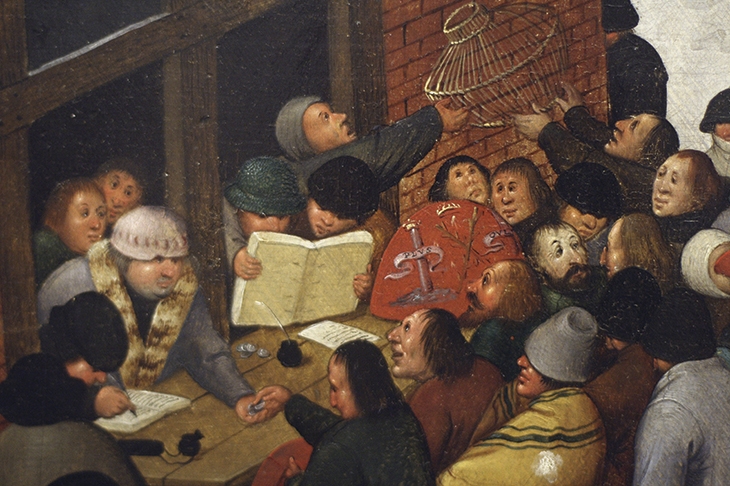Even before the first census was made in 1801, the plan was regarded with fear, hatred and ridicule. And this year, on 21 March, households have another chance to mock, embrace or ignore the census.
When parliament debated a bill in 1753 for an annual census, Matthew Ridley, MP for Newcastle, warned that his constituents ‘looked on the proposal as ominous, and feared lest some public misfortune or an epidemical distemper should follow’.
They were aware that, by the Bible’s account, ‘Satan rose up against Israel and caused David to take a census of the people of Israel’. God was so angry that he gave the King three choices: seven years of famine, three months of fleeing his enemies or three days of pestilence. He chose the last and 70,000 died. In our age of QAnon, we need not feel so superior to the Geordies’ fears.
We have surely lost sight of what in 1753 seemed to William Thornton, MP for York, the chief issue: liberty. ‘I did not believe that there was any set of men, or, indeed, any individual of the human species, so presumptuous and so abandoned as to make the proposal we have just heard,’ he said when the bill was introduced. It was just an instrument to extract taxes, ‘the most effectual engine of rapacity and oppression that was ever used against an injured people’. Thornton threatened to order his servants to show any census enumerator ‘the discipline of my horse pond’.
Nothing came of these first attempts, but by 1801, a new outlook possessed the ruling caste. All the talk was of Malthus and population. But perfectabilian appetites outran data-collecting ability. In 1801, ten out of 12 Welsh counties failed to make full returns. Scotland was more diligent, though Rum and Muck remained blanks.
Despite the insatiable curiosity of census–mongers, not until 1841 were names asked for. From 1871 to 1911 the householder was asked if anyone at home was ‘imbecile or idiot’. Yet, having asked in 1871 and 1881 if anyone was unemployed, the question was not repeated until 1931.
The liberty-loving spirit of William Thornton was a long time dying. In 1951, Sir Ernest Benn (an uncle of Tony) was fined £5 with two guineas costs for refusing to complete his form. His counsel explained that he hated ‘with a passionate hatred the encroachment of government activity’.
Nosiness only increased. In 1991 the obsession was ethnic grouping and central heating. This year, as in 2001 and 2011, we’ll be asked: ‘What is your religion?’ This has annoyed humanists, who say it suggests that people do have a religion. The 2011 census revealed an apostasy from the Jedi religion, which, from 390,127 adherents in England and Wales in 2001, had fallen to 176,632.
Householders have long risked a fine by mockery. In 1911 one included the cat (age eight, married, mouser). Yet real occupations could sound so outlandish that truth and parody were hard to distinguish. Among apparently genuine occupations given in 1891 were: stick polisher, owler, castrator, capitalist, wantcatcher, dog killer, panter, chair bodger, clod hopper, pig-maker, cowleech, rack maiden, Scotchman, knockknobbler, touch holer, ripper, slubber doffer, fancy man, eyer, lum swooper, muggler, feather wife, potato badger, henchman, tide gauger and devil.
The devil as usual was in the detail.






Comments